
HORIST: The complexities of John McCain
Throughout my entire life in civics, politics and business, I can hardly recall a time that John McCain was not a public figure of one sort or another. He was undoubtedly the most famous prisoner of war in Vietnam – and perhaps the most famous prisoner since “the man in the iron mask.” He was welcomed home with an invitation from President Nixon to visit the White House. He was elected to the United States House of Representatives in 1982. His early leadership abilities were recognized when he was chosen to be the president of the freshman class of House legislators. For approximately half of my seven and one-half decade lifetime, John McCain served in the United States Senate.
As can be expected, his passing has brought an outpouring of praise – a sort of political deification. These political obituaries dwell on all things positive in his life – as is our cultural tradition to do so. What was said was honest and well deserved.
McCain was an American hero. No human faults, weaknesses or political enmities can take away the heroics of those five long years he spent imprisoned under the most inhumane circumstances in a cage in Vietnam. He stood up to enormous physical torture that left him with a lifelong disability. His body was so damaged by repeated beatings that he was never again able to lift his arms above his head – not even to comb his hair. The fact – and it is an established fact – that he rejected a release that was offered because his father was a Navy admiral until others imprisoned before him were released was an act of both great nobility and loyalty.
Not only was McCain a hero, he was a patriot. He oft expressed his love for America — and his respect for our flag and National Anthem was deep and sincere. He was never more eloquent than when expressing his love of country.
In terms of his policies, McCain was a Republican by choice, but not a true conservative. While the press tends to refer to such political apostates as “moderates,”—or as he liked to call himself, a “maverick” — he was more of a liberal Republican – often aligning himself with the more liberal Democrat congressional leadership. His vote to retain Obamacare was a significant example. His longstanding support for so-called election finance reform – meaning more government restrictions and regulations – was another example.
Certain things are held to be beyond politicization, and public obituaries are among of them. Yet, there is an irony in the effusiveness of the praise coming from the liberal media. Anyone who has followed politics for more than the last election would remember that the same segment of the press that exalts McCain today had come down pretty hard on the McCain of the past – especially during his presidential run. It leads one to suspect – maybe even believe – that the praise is hyped a bit to get back at Trump – to imply a not-so-subtle unfavorable comparison.
If that is the case, it is Trump’s own fault. His giving the back-of-the-hand to McCain’s status as a military hero was wrong and crass. His nameless negative references to McCain’s vote on Obamacare during rallies – even as the man lay near death – were inappropriate, to say the least.
Still, McCain was a controversial figure with more than a few chinks in his armor. In 1967, he was involved in one of the worst naval accidents in American History. What is known factually, is that McCain was in the cockpit of his A-4E fighter jet on the deck of the U.S.S. Forrestal when a Zuni missile was prematurely launched from the jet behind him. While the missile flew off the ship without exploding, spilled fuel resulted in a major fire that killed 134 servicemen.
It was alleged that the Zuni was launched by the heat from the exhaust of McCain’s plane because he was hot-dogging with a “wet start” – allowing an unnecessary but more spectacular exhaust flame. The incident resulted in several versions and accusations of a cover-up to protect a prominent admiral’s son. The incident remains controversial but had little effect on McCain’s future ambitions.
His political career almost came to an end because of his involvement in a major saving-and-loan scandal. McCain was one of the “Keating Five” – and the only Republican — who were accused of “improperly intervening” on behalf of big donor Charles Keating, chairman of Lincoln Savings & Loan. The Phoenix New Times headlined a scathing editorial with: “McCain, the Most Reprehensible of the Keating Five.” The four Democrats were Alan Cranston, John Glenn, Dennis DeConcini and Donald Riegle. McCain weathered that storm.
McCain’s anger management problems were well known among those who dealt with him. These were not just the usual expressions of irritation. They were explosive and often irrational – having no apparent justification at times. When not in full rage, McCain commonly snapped back over the least disagreement or perceived insufficient response. When angered, he is known to have engaged in a seemingly endless serious of vulgar expletives.
His lashing out was sufficient to raise questions about his mental or emotional stability. It was an issue in one of his Senate races and a whispered concern in his presidential campaign.
I personally witnessed a bit of that on the only occasion I found myself in the company of McCain. I was asked to pick him up and drive him to a fundraiser in Chicago. He was accompanied by two staffers.
I was happy to serve as chauffer because McCain was, at that point, one of my favorite politicians. By the time I dropped him off at the fundraiser, I was totally put off. While he did not point his wrath in my direction – other than a level of rudeness to the “driver” – I was appalled at his treatment of the two staffers. It was as if he wanted to show his power and to humiliate them in front of me.
Just as McCain was able to keep his explosive personality out of his public persona, his tendency toward pettiness and retaliation was also largely unseen in public. Some close to McCain say the vote to save Obamacare was not issue based, but as his personal rebuke to a president he did not like. As one put it, “John voted with his middle finger.”
McCain’s harsh death-bed statement about Trump in Helsinki could only be appreciated by the most anti-Trump folks. It was not gracious, relevant or in the best interest of the nation. It was petulance – as was his public request that Trump not attend the McCain funeral in any capacity. In these end-of-life slings and arrows, McCain showed none of his claimed ability to get past differences or his fabled sense of humor.
It is in these moments that people reflect on a person’s legacy. The obituaries will speak of a profound legacy, but in reality, they tend to be more aspirational than inspirational. Certainly, in life he altered the course of politics and history. He will be remembered and enshrined with statues, plaques and his name will be memorialized on government buildings, schools, streets and parks. Still, he lacks an enduring legacy. He participated in some of the most important legislative debates of our times, but has no great legislative accomplishment credited to his name. He has produced no movement to be carried on in his name.
Taken in totality, however, John McCain can fairly be labeled “a good man” who did good work. Not as perfect a man as he may appear in his public requiem, but clearly a good man. He served the country he loved to a greater benefit than could ever be overshadowed by his shortcomings.
Larry Horist is a conservative activist with an extensive background in economics, public policy and politics. Clients of his consulting firm have included such conservative icons as Steve Forbes and Milton Friedman, as well as the White House. He has testified as an expert witness before legislative bodies, including the U. S. Congress, and lectured at major colleges and universities. An award-winning debater, his insightful and sometimes controversial commentaries appear frequently on the editorial pages of newspapers across the nation. He can be reached at lph@thomasandjoyce.com.


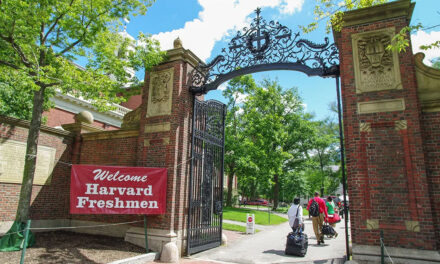

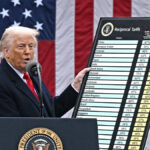
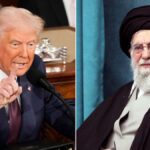
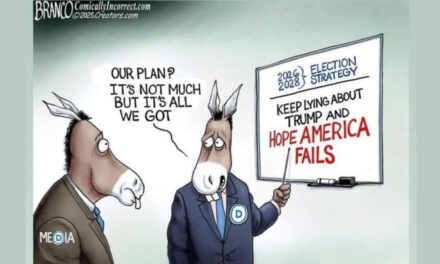
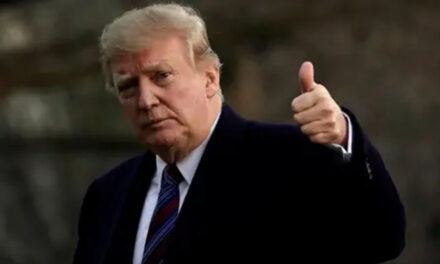




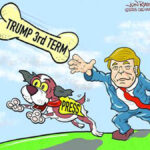
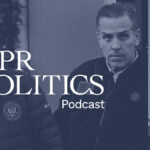


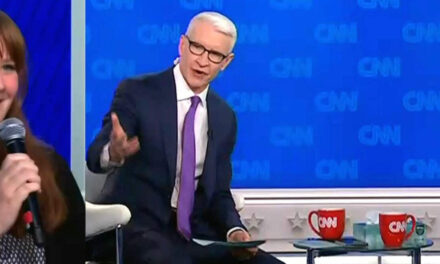







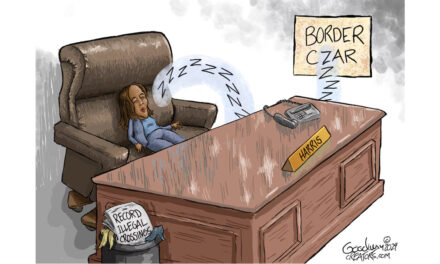

At last Larry has been heard from with "Leave a Reply". We know Larry is the author of the Reply…
Trump is probably the most fit President we have had in the White House for a President at any age.…
Cognitive and physical health. OMG. Elections have consequences. It’s proven that Trump is smarter than Frank Dunger. Any in agreement?…
He said, she said so who are we going to believe. Larry you cast a very dim light on the…
You asswipes aren’t good enough to give Trump a rim job. But speaking of Trump, he passed his physical examination…